Inflation is a fact of life—but when prices spike and wages don’t, your finances take a hit. As we write this, consumer prices are nearly 2.7% higher than a year ago, and most Americans say their incomes haven’t kept pace. As a result, many people are turning to credit cards to cover everyday expenses.
A recent survey found that 45% of respondents rely more on credit cards due to rising prices. And according to Bankrate, 37% of Americans have maxed out or are close to maxing out at least one credit card.
Credit card debt during inflation can spiral quickly, unless you act strategically. In this guide, we’ll dive into debt management, inflation, and why credit counseling could be your most effective tool.
How Does Inflation Impact Credit Card Debt?
Inflation affects more than just the price of groceries and gas. It can seriously impact your ability to manage credit card debt. Your financial flexibility shrinks as the cost of living rises and interest rates climb.
Here are the most common ways inflation makes credit card debt harder to manage:
- Higher monthly payments: As prices climb for food, rent, and transportation, your disposable income shrinks. Keeping up with credit card payments becomes tougher.
- Rising interest rates: Credit card APRs often follow inflation. When inflation goes up, so do interest rates, increasing the cost of carrying a balance.
- More reliance on credit: Stretched thin, many turn to credit cards for basic needs, fueling more credit card debt during inflation and triggering a vicious cycle
- Diminished savings value: Inflation erodes savings and investment returns, leaving less cushion to chip away at debt.
- Differing impact on debt types: Variable-rate credit cards feel inflation most sharply. Fixed-rate debt may feel stable, but when renewal time comes, rates can surge with the market.
Understanding these impacts is the first step toward smarter debt management during inflation.
What Are Some Traps to Avoid with Credit Cards During Inflation?
When inflation happens, it’s easy to fall into habits that feel helpful in the moment but worsen your situation over time. Avoid these common credit card pitfalls to save money and stress:
- Using credit cards for essentials without a payment plan: Charging everyday expenses without a repayment strategy can lead to mounting debt and costly interest.
- Paying only the minimum: This prolongs your debt and significantly adds to your total payment over time.
- Ignoring interest rate increases: Even if you’ve had stable rates before, inflation can cause lenders to raise them. Keep an eye on your statements and updates from your issuer.
- Applying for new cards for rewards or temporary relief: Reward chasing and relying on short-term 0% offers can backfire if balances aren’t paid off before the promo period ends.
- Overlooking financial red flags: Late payments, maxed-out cards, and skipped bills are signs it’s time to reassess and possibly seek debt help.
These choices are often common behaviors during tough times. The goal is to become aware and start making small shifts toward more sustainable debt practices.
How Can I Take Control of My Debt When Prices Are Going Up?
Managing credit card debt during inflation requires both mindset shifts and strategic action. Here are proven ways to start taking control:
- Pause non-essential credit card spending: Focus on needs, not wants. Try using cash or debit to stay grounded in real-time balances.
- Use a zero-based budget: Assign every dollar of income a job—whether it’s rent, groceries, or paying down debt. No “leftover” money. Try our Debt Consolidation Calculator or MoneyFit’s Credit Card Debt Calculator to model your numbers.
- Sort your debts by interest rate (highest first): Known as the avalanche method, this strategy saves you the most on interest.
- Consider a balance transfer offer: If you qualify for a 0% APR card, this can buy you time. But make sure you can pay it off before the promo ends.
- Look into debt consolidation loans: These can simplify multiple payments into one and may offer lower, fixed rates which can be helpful during high inflation periods.
- Contact your credit card issuer: Many offer hardship programs, temporary APR reductions, or deferred payment options. Don’t wait to ask.
- Explore credit card relief programs: If your debt feels unmanageable, you may qualify for assistance beyond a DIY plan. Learn more about our credit card relief services.
- Talk to a credit counselor: A free or low-cost session with a nonprofit counselor can offer personalized solutions that align with your income and goals. Explore our credit counseling services.
Not sure what to expect? Learn about the benefits of speaking with a credit counselor, from reduced stress to lower interest rates.
Don’t Ignore the Emotional Toll of Inflation
Dealing with inflation and credit card debt at the same time is more than just a numbers game—it’s emotional. Many people feel shame, anxiety, or even panic when they look at their credit card bills. This stress can lead to avoidance, which only makes the problem worse.
Credit counseling offers not just financial support, but emotional clarity, too. Having someone on your side can be a huge relief when you’re overwhelmed. Credit counselors won’t judge your past decisions. They are there to offer you a clear, structured path forward.
You deserve to feel in control of your money again. And with a plan, regaining control is possible even during times of inflation.
Is Credit Counseling a Good Option?
If you’re overwhelmed by credit card debt during inflation, credit counseling offers reliable, judgment-free support.
Here‘s why it works:
- Credit counselors can help you create a budget: A credit counselor can work with you to create a budget that considers your income, expenses, and debts. This can help you manage your finances more effectively and avoid overspending.
- Credit counselors can negotiate with your creditors: A credit counselor will work with your creditors to reduce your interest rates, waive fees, and create a payment plan that works for you. This can help you pay off your debts more quickly and avoid further damage to your credit score.
- Credit counseling can help you avoid bankruptcy: If you’re facing overwhelming debt, bankruptcy may seem like the only option. However, credit counseling can help you explore other options, such as debt consolidation or settlement, that can help you avoid bankruptcy and its long-term impact on your credit score.
- Credit counseling can provide education and support: Credit counseling can provide you with the education and support you need to manage your finances more effectively. This can include resources on budgeting, saving, and investing, as well as one-on-one support from a credit counselor.
You’re not alone. A credit counselor can help ease the burden of debt and open the door to a more secure, confident future. Ready to speak to someone? Our team is ready to assist you at 866-688-3328.
Start Managing Your Debt with Confidence
Inflation and credit card debt are a tough combination, but you have options. If you’re struggling to manage your debt, credit counseling is your best bet for debt management during inflation.
At Debt Reduction Services, we’re here to support you. Our credit counselors can create a personalized budget, negotiate with your creditors, help you avoid bankruptcy, and provide the tools and guidance to get you back on track.
Contact a credit counselor today to take control of your finances and manage your debt effectively.
About the Author
Eric has amassed extensive experience in the financial and credit counseling sector, dedicating numerous years to this industry. Presently, he serves as a certified credit counselor at Debt Reduction Services, leveraging his expertise to assist individuals in managing their debts effectively. Throughout his career, Eric has consistently exhibited his commitment to empowering consumers with the knowledge and tools necessary to navigate their financial challenges.











